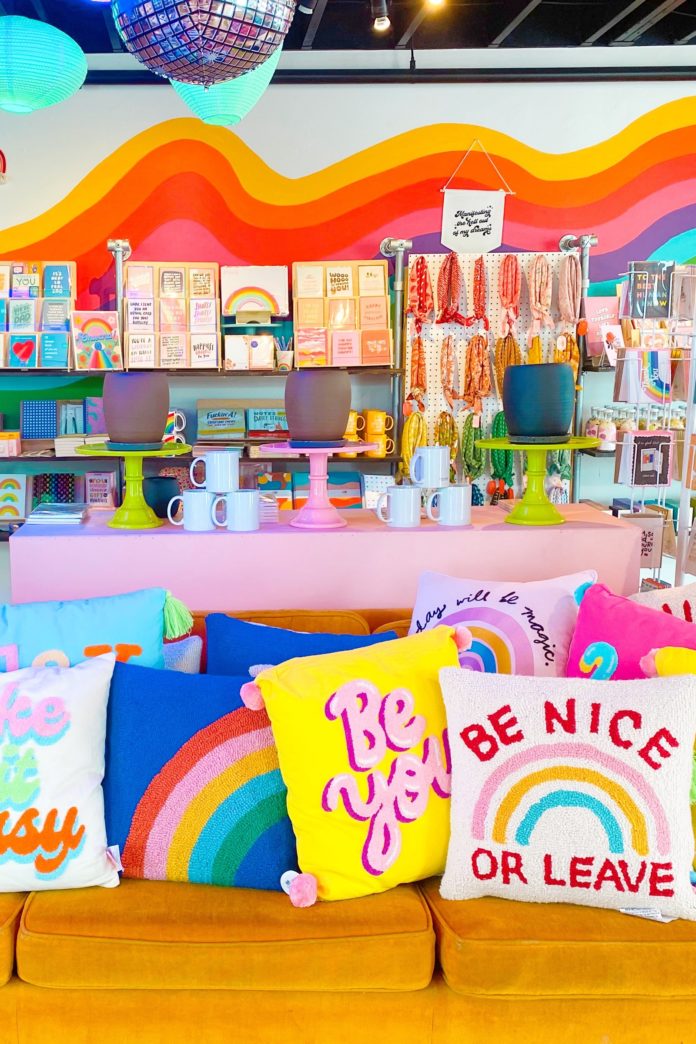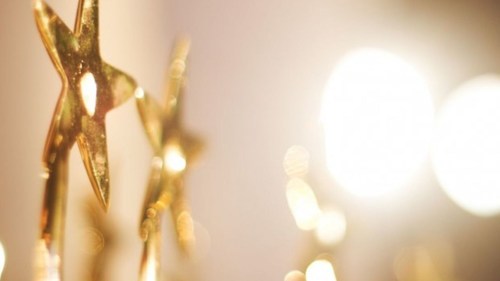Oklahoma is a state of preconceived notions. Ask anyone about the Sooner State and they’ll likely mention chicken-fried clichés and tornadoes—and staunch conservatism. But now, marginalized communities are getting louder and prouder, with the state’s capital leading the charge.
Oklahoma City, also known as OKC, is growing fast, with shifting demographics to match. In the most recent census, the city grew by 17 percent to a population of 669,347, leap-frogging cities like Portland, Oregon, and Las Vegas to become America’s 22nd largest. It’s also diversifying—from 2010 to 2020, the city’s white population dropped from 68.7 percent to 60.8 percent, with a rising number of residents who identify as Hispanic or Latino, Black, Asian American, and Native American. Across these demographics, another minority is making its presence known: the LGBTQ+ community.
The evidence is everywhere, from the fierce performances of local Latinx drag performer Topatio and the “Y’all Means All” tattoos by Holy Crow Stick n Poke, to the rainbow motif at Common Dear, a “feminist and self-empowerment gift shop” owned by wives Kelli and Jessi Newsome. OKC Pride Alliance held its June 2021 festival front-and-center in downtown’s Scissortail Park, and OKC’s gayborhood has become a bastion of queer bars in the 39th Street Entertainment District. It’s these existing and enduring spaces, and pioneers at the forefront, making OKC a destination for queer travel.
As Rachael Leonhart, an Oklahoma transplant and executive director of the Plaza District, puts it, adversity breeds community. “It’s still not okay to be gay in most places in Oklahoma,” she says. “People flock to safe places. We’re in the middle of a queer-led renaissance right now thanks to a handful of folks paving the way and inspiring others to live authentically. We’ve got this large population of queer 2SLGBTQIA+ Oklahomans seeking safe spaces that they’ll travel for.”
Folks from rural regions in Oklahoma increasingly sought refuge in vibrant OKC. “It’s safety in numbers,” says AJ Stegall, photographer and founder of the Oklahoma Rainbow Collective, an LGBTQ+ wedding vendor directory for the state. Prior to becoming a full-time photographer, Stegall was a band teacher in rural Oklahoma. “I always wanted to be a really positive gay role model, but in this state, you can’t do that because of job security,” he says. Doing business in OKC provides that alternative. “I’m basically doing the same thing I was doing in the classroom, but I’m able to be fully me.”
Richard Sturt, co-founder of Stonewall Security, a queer security company providing a police alternative for businesses, agrees. “It takes courage to be out in a place like Oklahoma. It’s a courage we see in every queer person in this state, and we all use that to motivate us to keep working to ensure our community is safe and welcoming for far more than just wealthy, white, gay men.”
This safety in numbers ethos is palpable, especially in neighborhoods like the Plaza District, where the Lyric Theatre of Oklahoma brings queer stories to stage, where queer-owned 84 Hospitality restaurant group is headquartered, and where retailers fly their rainbow flags, like Dig It’s all-ages drag shows and “Kiss Who You Fucking Like” crop tops.








